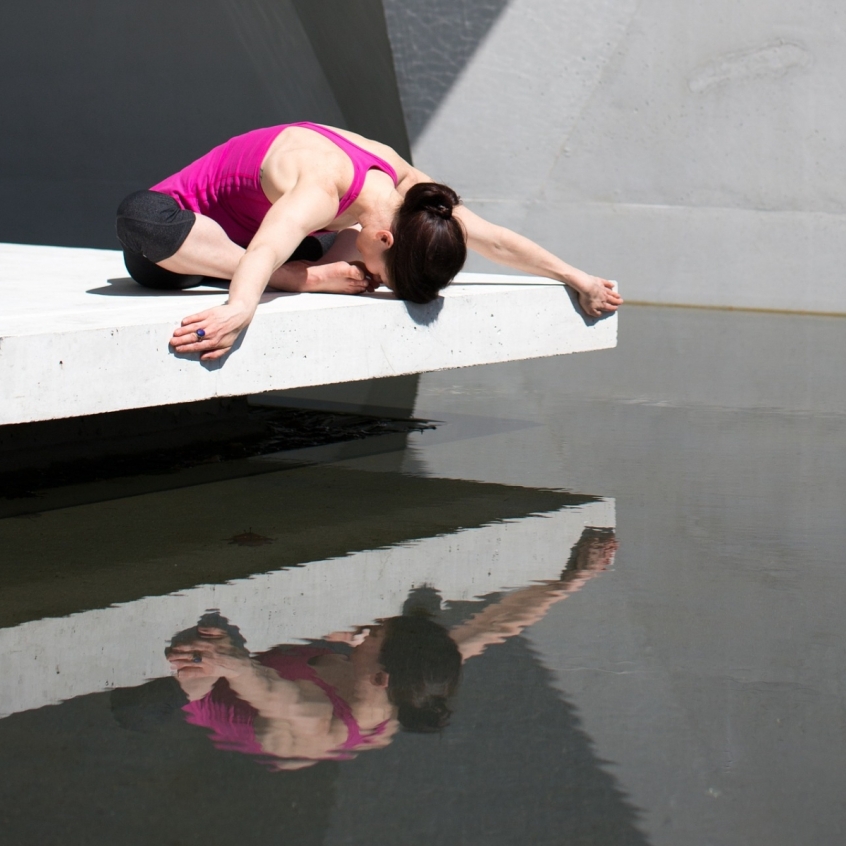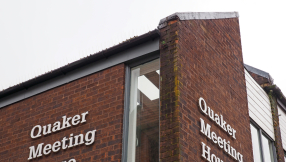Should Christians practise yoga? For some it's a non-question – yoga is just a nice way of keeping fit and flexible, with no spiritual implications at all. They're perfectly happy to see their church hall hired out to a yoga group. For others, yoga is a practice imported straight from Hinduism. At best it's compromising Christian witness and at worst it's a gateway to demonic powers.
So how do Christians navigate the conversation? And how does the controversy over yoga fit in to the wider issue about how Christians respond to the alternative spiritualities that seem to be on the rise as institutional religion is declining?

Ross Clifford and Philip Johnson are the authors of Taboo or To Do? subtitled 'Is Christianity complementary with yoga, martial arts, Hallowe'en, mindfulness and other alternative practices?' Their answer, broadly speaking, is "Sometimes, with care, and at least there are ways of talking to people who practise them in a way that builds bridges."
Christian Today asked them about yoga and about spirituality.
Secularists tend to think there's an inexorable move away from religion and spirituality towards "rationalism". Is your book arguing this isn't true?
Yes, we believe that in Britain, and the rest of the world, people are becoming more interested in spiritual things. People are not necessarily committed to organised religious bodies but are exploring a range of practices such as yoga, T'ai Chi and mindfulness meditation.
The report The Spirit of Things Unseen: belief in post-religious Britain (Theos, 2013) observes that while belonging to an organised religion has declined this has not led to a massive drift into atheism. Rather, "a spiritual current runs as, if not more, powerfully through the nation than it once did".
Why do Christians get so worried about alternative spiritualities?
The main alarm is that many Christians have direct links to Eastern spiritualities such as yoga (Hinduism), mindfulness (Buddhism), T'ai Chi (Taoism, Zen) and energy healing (Hindu or occult beliefs). What we are finding is that people want to have a conversation about these things.
We are interacting with yoga in such areas as school life, sports teams, gyms and work-places. People who have no connection to the church are taking up yoga for many reasons. It is the spiritual topic that few of us can avoid. It is one reason why we wrote Taboo Or To Do?
In terms of yoga specifically: are Christians generally wary of it, or is it seen as something indifferent?
It is a mixed bag. Some churches hire out their halls to yoga. Individuals are involved in yoga in their gym, schools and work-places. Others are running away from it because of the links to Hindu faith.
What are the issues that might give Christians pause?
In Taboo Or To Do? we have a discernment section in each chapter for Christians to sort out the critical questions. There are also group study questions where matters may be sifted through. The major issue is the link to Hinduism: are we then playing around with other gods and exposing ourselves to unhelpful or even "demonic" influences? A further concern is whether we should be taking practices from another faith.
Is it possible to separate it as a physical and mental discipline from its religious roots?
That is the key question! We need to keep in mind that, in the traditional Hindu expression of yoga, the exercises are integral to the higher spiritual goal of attaining union with the god Shiva. There are various Hindu approaches such as Bhakti yoga, Raja yoga and Siddha yoga that incorporate postures, meditations, chanting mantras and taking spiritual instruction from a guru (teacher). However, it is apparent in the West today that there are many teaching yoga where the physical and mental exercises are clearly divorced from Hindu faith. Many in the West insist that Hatha yoga, which is centred in the bodily postures and exercises, may be practised without all the trappings and teachings of traditional Hindu faith. This diversity of approaches requires that we do some background checking.
Is it appropriate or respectful to Hindus to raid their faith for the sake of keeping fit?
Some Hindus and spiritual seekers are upset by the trend. Christians involved in creative outreach ministries need to be sensitive to this. There are programmes such as PraiseMoves and Holy Yoga that reframe the exercises around praising Jesus using music and passages from the Bible.
If a church is concerned about this – say it has an application to use its premises from a yoga group – how should it go about having the conversation?
Firstly, it needs to take time to understand the practitioner's or group's worldview. Is it Hatha yoga, where the emphasis is simply on physical exercise, or is there a deeper emphasis? Secondly, we think that the church in its pulpit ministry and small groups should involve the congregation in the conversation. People need to be informed and understand why a decision is being made. Whatever is decided will have an impact on individuals and families.
Is it possible to find common ground between people who believe yoga is a gateway to dark forces, and people who think it's completely harmless?
Yes, we believe so. If there is an understanding about why people make decisions one way or another, it is helpful if everyone concerned is conversant with the major issues. There can be misinformation on both sides. Taboo Or To Do? gives background, contact points, discernment and case studies to enable readers to come to terms with controversial practices like yoga.
Ross Clifford and Philip Johnson co-founded the Community of Hope, which pioneered ministry into Mind, Body, Spirit lifestyle festivals. Clifford is the Principal of Morling Theological College in New South Wales and Johnson is an adjunct lecturer.
Taboo or To Do? is published by DLT, price £12.99.













